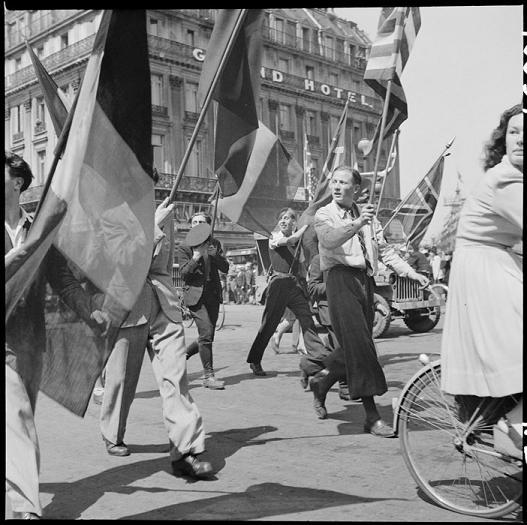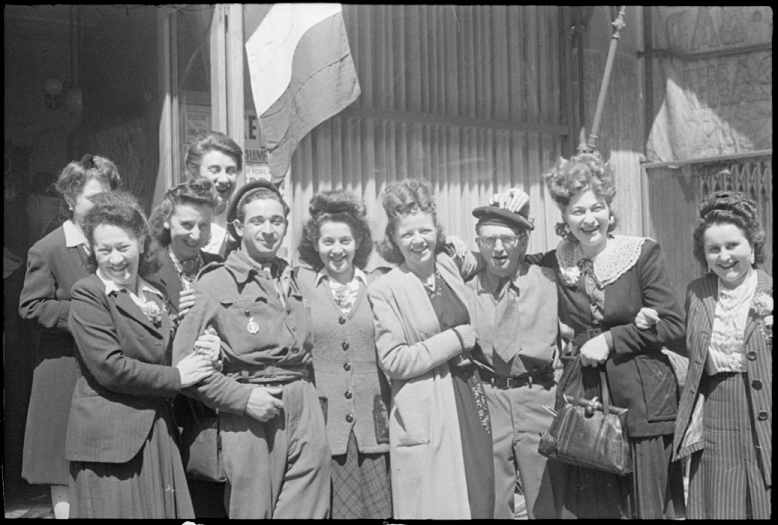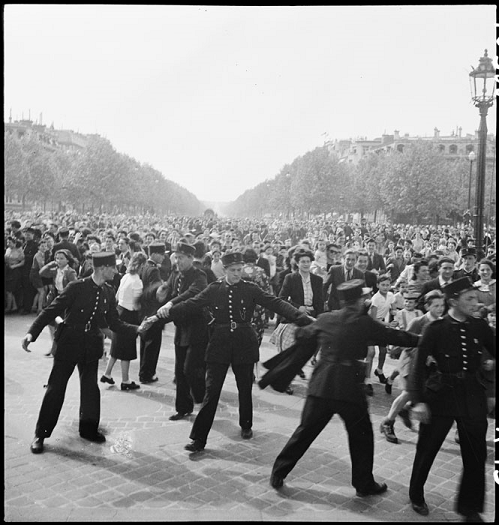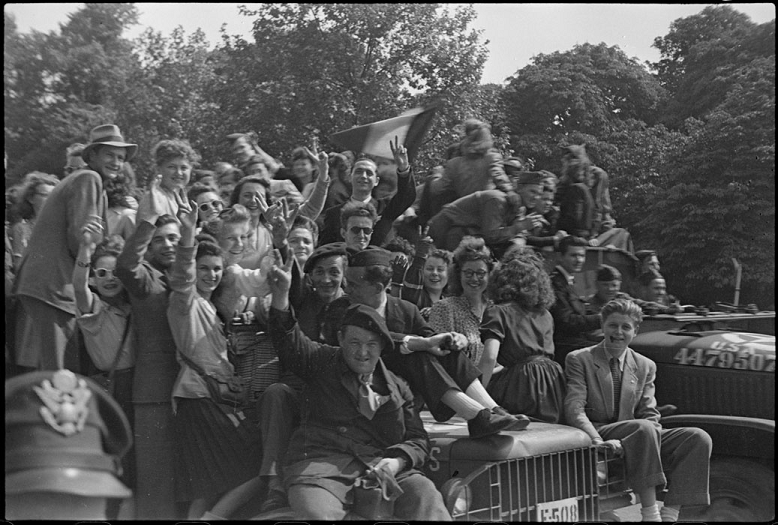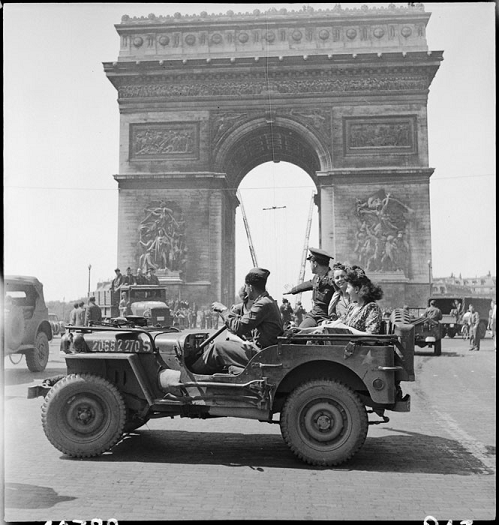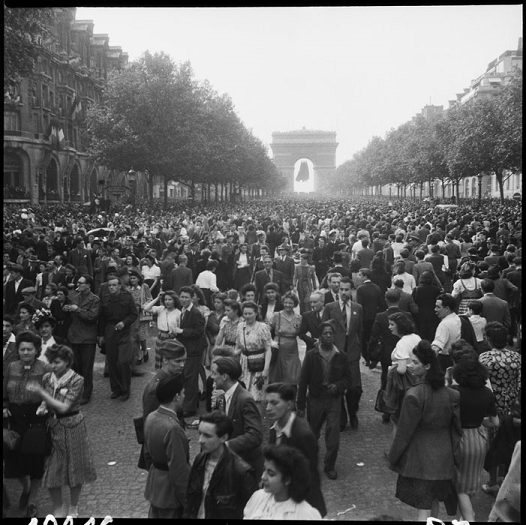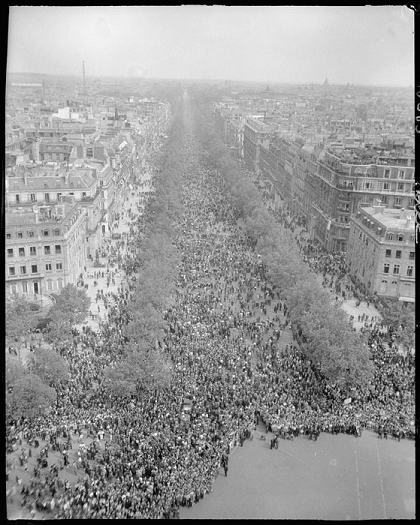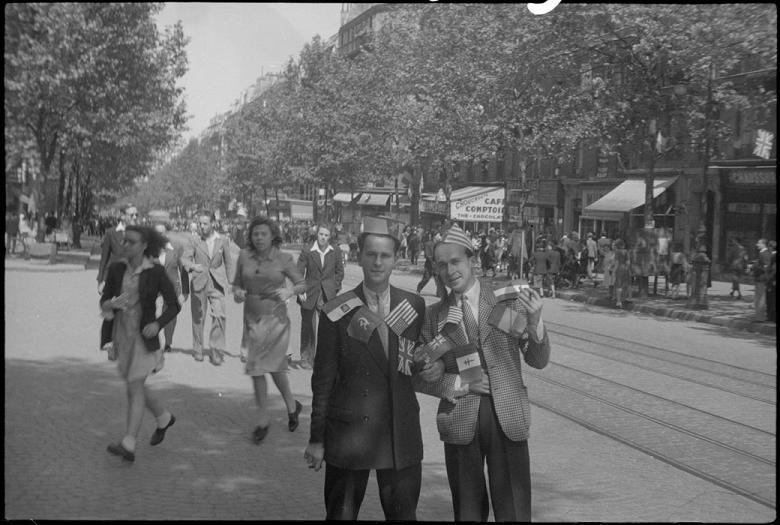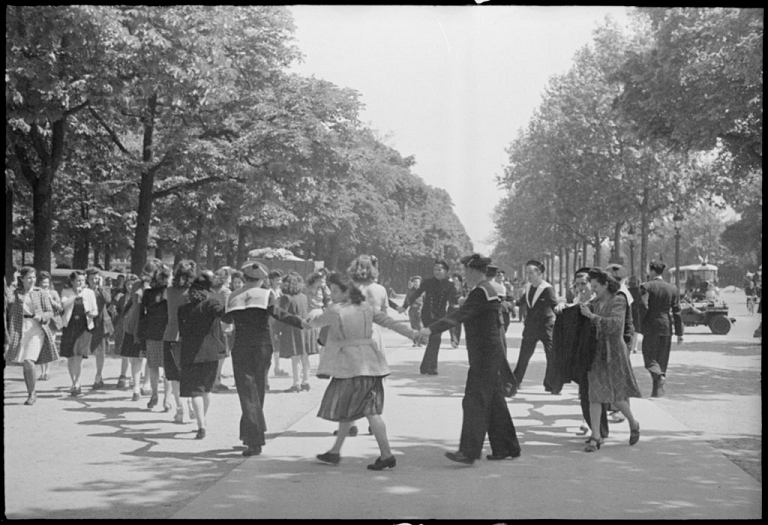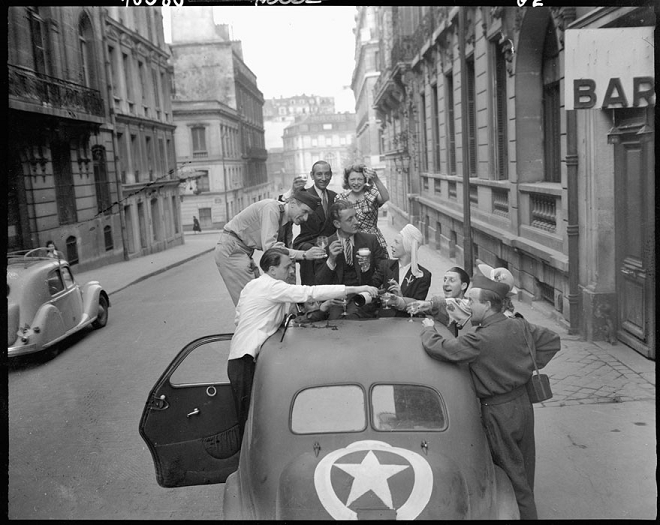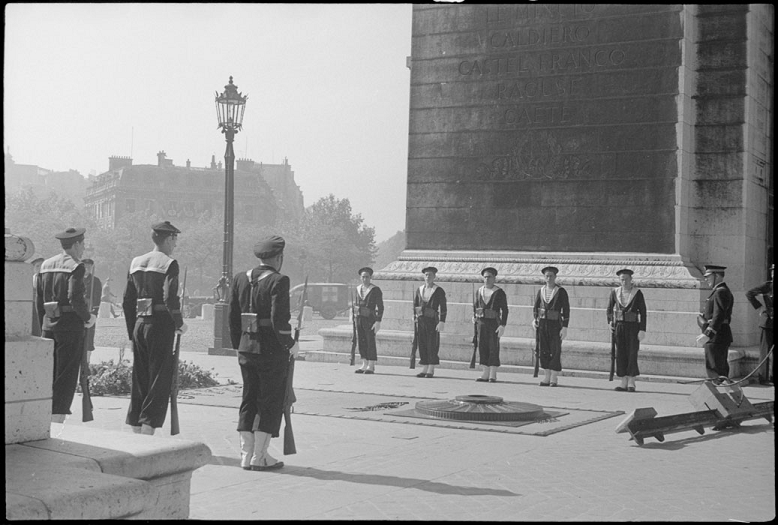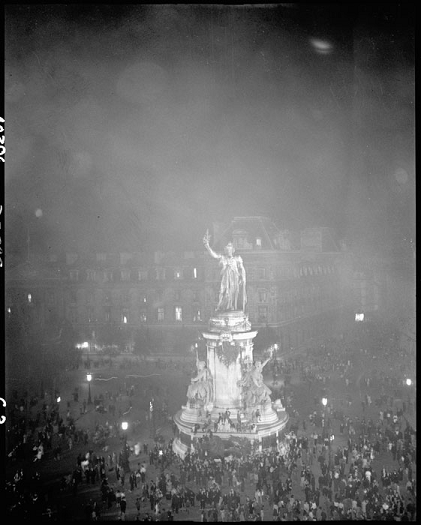National day of 8 May 1945

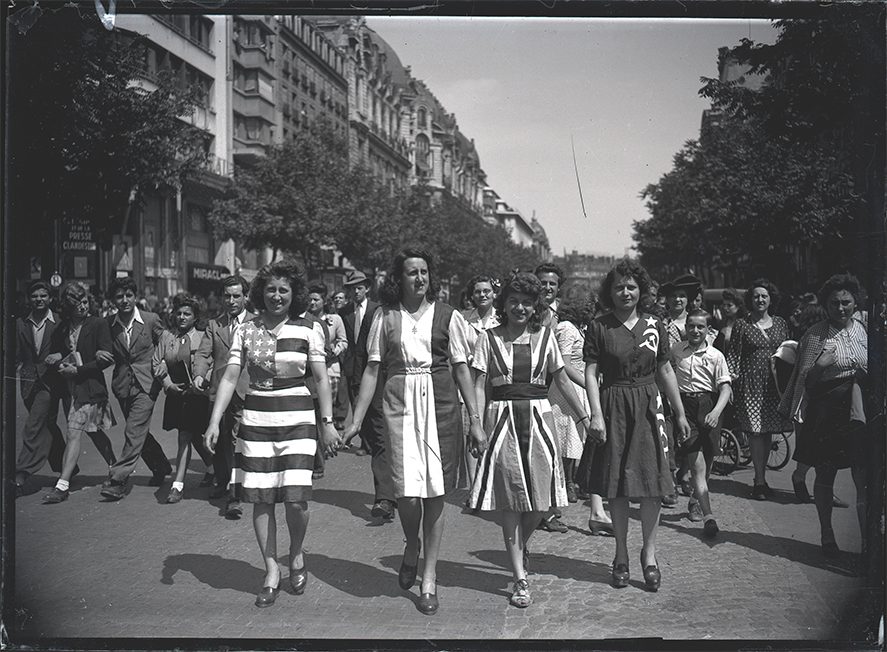
Young women parade through the streets of Paris wearing dresses in the Allied colours to celebrate the victory, Paris (grand boulevards), 8 May 1945. Libération Soir/Le Populaire
© MRN/Le Matin press photo archive
On 8 May 1945, the last representatives of the Third Reich signed, in Berlin, the unconditional surrender of a defeated Germany, now occupied by Allied forces. That surrender, signed on 9 May in the Soviet Union due to the time difference, and already signed for the first time on 7 May in Reims, did not, however, mark the end of the Second World War, for Japan continued to fight until 2 September. But it did confirm the Allies’ military victory in Europe and the political defeat of Nazism. It also meant that France, recognised among the victors and represented in Berlin by General de Lattre de Tassigny, could publicly announce its resurrection.
If the current health situation gets in the way of holding the usual ceremonies associated with this major event, clearly it should not prevent us from celebrating it.
View the message of the Minister for Remembrance and Veterans
An object and an anecdote for the 8th May: the surrender pen!
Pen used by General de Lattre on 8 May 1945, in Berlin, to sign the act of German surrender
Source: Musée de l'armée, Paris
The definitive act of surrender of Nazi Germany was signed on 8 May 1945, at the headquarters of the Soviet Union’s Marshal Zhukov, in Berlin. Generalfeldmarschall Keitel (Chief of the General Staff), Generaladmiral von Friedeburg (German Navy) and Generaloberst Stumpff (Luftwaffe) represented Germany; Marshal Zhukov (Supreme High Command of the Red Army) and Air Chief Marshal Tedder (Deputy Supreme Commander of the Allied Expeditionary Force) represented the Allies.
As witnesses, General de Lattre de Tassigny, commander of the French First Army, and General Spaatz, commander of the United States Strategic Air Forces, also had to sign the document. However, when the moment came for them to sign, they realised neither of them had a pen!
General de Lattre de Tassigny therefore borrowed the pen presented here from his chief of staff, Colonel Demetz. Afterwards, the French general had to ask for it back from General Spaatz, who thought he would keep it as a souvenir!
Relive the period and understand the importance of the event
In historical articles
- The Red Army’s final offensives, an article by Jean Lopez on the military context
- Reims, 7 May 1945: the German surrender, an article by Marc Bouxin in Les Chemins de la Mémoire no 249, on the first German signing of the surrender
- 8 May 1945 : the terms of the German surrender
- A full feature on the actors of 9 May 1945, by Réseau Canopé
- The 8th May, an illustrated history of a public holiday
In recordings and video footage
- General de Gaulle’s speech on the radio, announcing the German surrender on 8 May
- The German surrender and the celebration of the Allied victory, a montage of French and Allied archive film footage, compiled by the ECPAD
- The national anthems of the victorious powers that were signatories of the act of surrender:
In testimonies
- Where were you on 8 May 1945?Animated testimonies from those who fought in the conflict, produced by the ECPAD
- The 8th May 1945 of Cécile Rol-Tanguy, an interview with the famous Resistance member who died on 8 May 2020 at the age of 101
- The thoughts of some of the main protagonists
In research on the Mémoire des Hommes website
In photographs
- General de Lattre de Tassigny signs the act of surrender in Germany, Fondation Charles de Gaulle
- VE Day in Paris, 8 May 1945, illustrated using the resources of the Musée de la Résistance Nationale
- A slide show: Paris celebrates the victory
